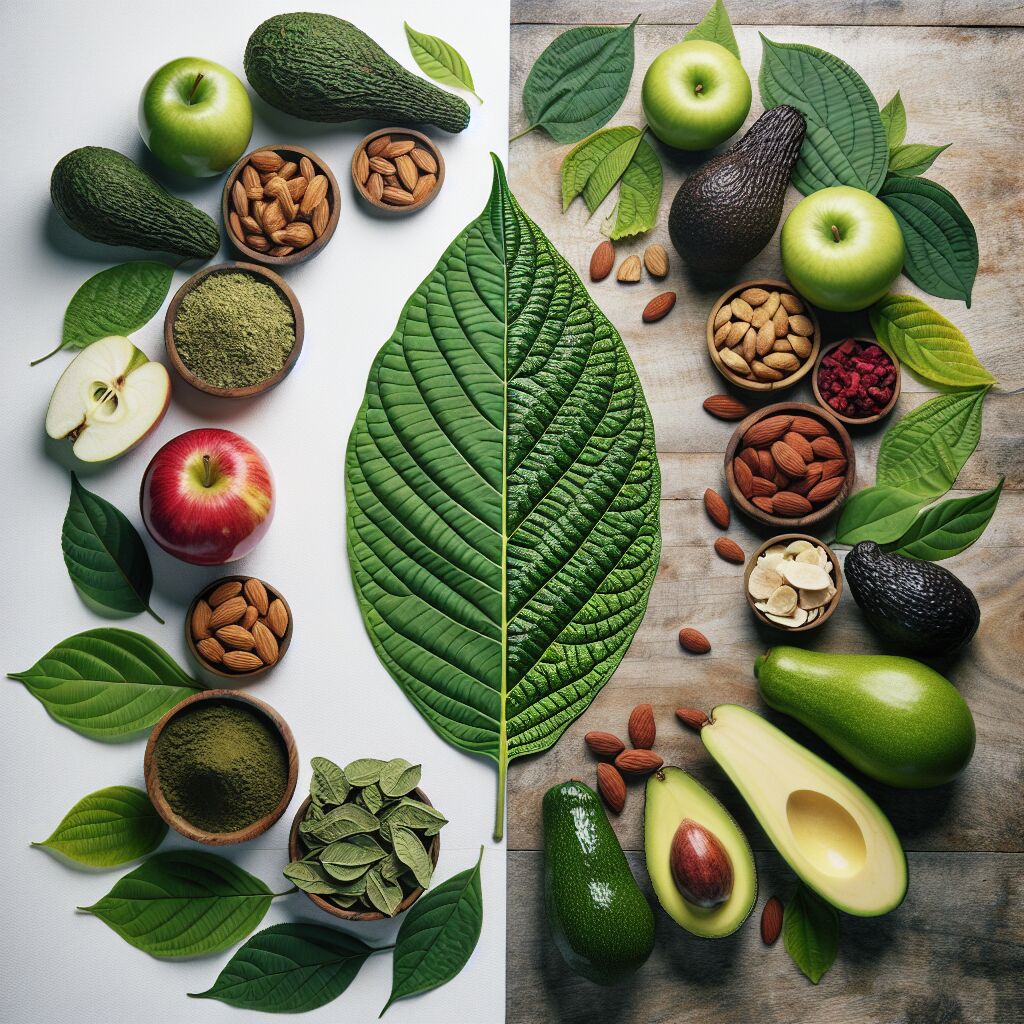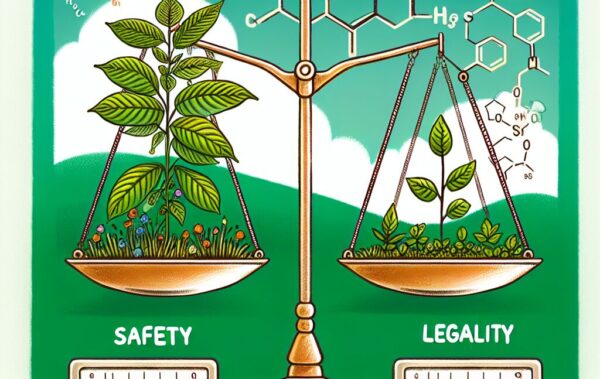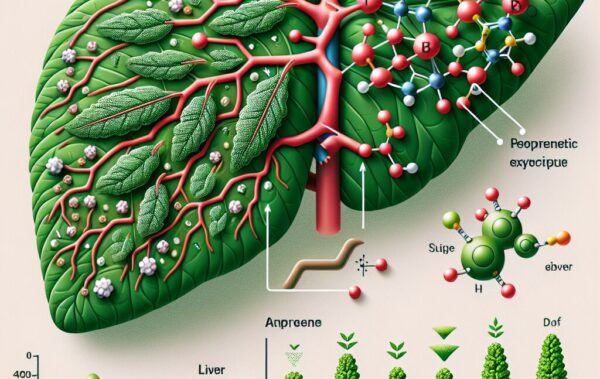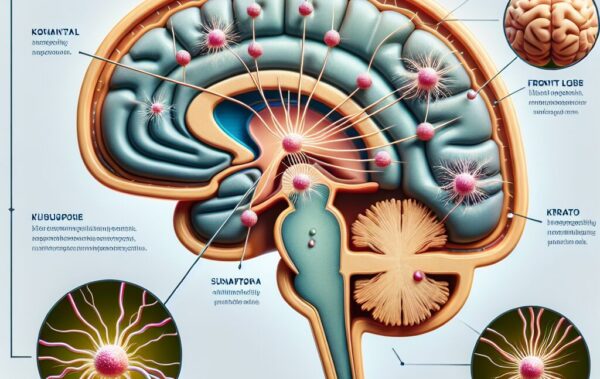.container {max-width: 1200px;}
- Understanding kratom and its uses
- Common natural appetite suppressants
- Mechanisms of action
- Safety and side effects profile
- Comparative effectiveness and user experiences
Kratom, scientifically known as Mitragyna speciosa, is a tree native to Southeast Asia. Traditionally, its leaves were used by local communities to combat fatigue, enhance mood, and alleviate pain. However, in recent years, kratom has gained attention in the Western world for its potential as a dietary supplement, particularly in the realm of appetite suppression and weight management.
Users of kratom often report experiencing reduced hunger pangs, which can be beneficial for those trying to manage their eating habits. The primary active components of kratom, mitragynine and 7-hydroxymitragynine, interact with the body’s opioid receptors, which can result in feelings of euphoria and an overall reduction in pain and discomfort. These effects can make it easier for someone to adhere to a reduced-calorie diet without the constant distraction of hunger.
For those new to kratom, it is available in various forms, from traditional powders to more modern consumables like kratom capsules and kratom edibles. These different formats provide flexibility based on user preference and lifestyle. Beginners might start with Sumatra kratom capsules due to their ease of use and controlled dosage.
While some individuals might find kratom effective as a natural remedy for appetite control, it’s essential to recognize that kratom’s primary uses remain centered around mood enhancement, pain relief, and boosting overall well-being. Understanding its multifaceted benefits can help users determine if incorporating kratom into their daily regimen aligns with their personal health goals, particularly concerning weight loss and appetite suppression.
Common natural appetite suppressants
The journey to managing one’s appetite and achieving weight loss goals often involves exploring various natural remedies. Among the most commonly discussed natural appetite suppressants, several stand out due to their availability, ease of use, and supportive evidence of effectiveness. Understanding these options can help individuals make informed decisions about integrating them into their lifestyle.
One of the most popular natural appetite suppressants is green tea extract. Rich in catechins and caffeine, green tea extract is believed to enhance metabolism and promote fat oxidation. Many users report a slight reduction in hunger and a boost in energy when incorporating green tea into their daily routine. It’s available in various forms, including teas, capsules, and powders, making it a versatile option for many.
Another widely used appetite suppressant is Garcinia Cambogia. This tropical fruit contains hydroxycitric acid (HCA), which is thought to inhibit a fat-producing enzyme called citrate lyase, potentially diminishing appetite and encouraging weight loss. While results can vary, some studies suggest that Garcinia Cambogia can support modest weight loss efforts when combined with a healthy diet and exercise regimen.
The spice cinnamon is not just a flavorful addition to your morning oatmeal; it also has appetite-suppressing properties. Cinnamon can help stabilize blood sugar levels, which in turn may reduce cravings and sustain energy levels throughout the day. Sprinkle it over your dishes or mix it into your drinks to enjoy its benefits.
For those with a sweet tooth, apple cider vinegar presents a unique option. Ingesting apple cider vinegar before meals might help you feel fuller faster, thus potentially reducing the overall calorie intake. Some studies have indicated that it can slow the rate at which food leaves your stomach, extending feelings of fullness.
Lastly, glucomannan, a dietary fiber derived from the root of the konjac plant, has been increasingly recognized for its ability to suppress appetite. When consumed, glucomannan absorbs water and expands in the stomach, creating a sensation of fullness that can help decrease food intake. It’s available in various supplement forms, including powders and capsules.
- Green tea extract: boosts metabolism, available in teas, capsules, and powders.
- Garcinia Cambogia: contains HCA, may reduce fat production and curb appetite.
- Cinnamon: helps regulate blood sugar levels to curb cravings.
- Apple cider vinegar: may enhance feelings of fullness before meals.
- Glucomannan: expands in the stomach, promoting fullness and reducing intake.
While these natural appetite suppressants provide various benefits, the effectiveness and experience can differ significantly among individuals. Some may prefer the simplicity and traditional use of kratom for managing their eating habits. If you’re interested in exploring kratom’s potential, you might want to start with versatile products such as kratom capsules or Maeng Da kratom powder.
Implementing natural appetite suppressants into one’s diet can serve as a supportive measure in achieving weight loss objectives and maintaining healthier eating habits. Whether choosing green tea, Garcinia Cambogia, or kratom, it is essential to prioritize a balanced diet and regular exercise to maximize the benefits. For those ready to explore kratom, our extensive selection of kratom products offers a starting point for integrating this natural remedy into your wellness routine.
Mechanisms of action
Kratom and other natural appetite suppressants function through distinctly unique mechanisms. Understanding how each of these substances interacts with the body can provide valuable insights into their potential benefits for weight management and appetite control.
Kratom’s primary components, mitragynine and 7-hydroxymitragynine, primarily act on the body’s opioid receptors. These receptors are usually associated with pain relief and mood regulation. When kratom binds to these receptors, it can induce feelings of euphoria, pain reduction, and even mild sedation. These effects can indirectly contribute to appetite suppression by enhancing mood and reducing the psychological triggers for overeating. For example, individuals who eat out of stress or anxiety might find that kratom helps diminish these triggers, thus curbing the urge to eat unnecessarily.
Natural appetite suppressants like green tea extract and Garcinia Cambogia work through different biological pathways. Green tea extract, rich in catechins and caffeine, promotes fat oxidation and enhances metabolism. The elevated metabolic rate can increase the body’s calorie expenditure, which may result in reduced hunger. On the other hand, Garcinia Cambogia’s hydroxycitric acid (HCA) blocks the enzyme citrate lyase, which the body uses to make fat. By inhibiting this enzyme, HCA also helps reduce sugar cravings, contributing to a lower overall calorie intake.
Cinnamon’s effect comes from its ability to stabilize blood sugar levels. When blood sugar levels are stable, there is less likelihood of experiencing dramatic energy fluctuations that can lead to hunger pangs and cravings. Apple cider vinegar might help increase the feeling of fullness due to its ability to slow the rate at which food leaves the stomach. This extended digestion period can lead to fewer hunger cues throughout the day.
Glucomannan operates through a straightforward yet effective mechanism. As a dietary fiber, it absorbs water and swells in the stomach. This creates a feeling of fullness, which can lead to a natural reduction in food intake. Many find this dietary fiber particularly beneficial when taken before meals.
| Substance | Mechanism of Action |
|---|---|
| Kratom | Binds to opioid receptors, induces euphoria and pain relief, reduces psychological eating triggers |
| Green Tea Extract | Increases metabolism and fat oxidation through catechins and caffeine |
| Garcinia Cambogia | Inhibits citrate lyase, reduces fat production and sugar cravings |
| Cinnamon | Stabilizes blood sugar levels, reducing energy fluctuations and cravings |
| Apple Cider Vinegar | Slows the gastric emptying rate, prolonging fullness |
| Glucomannan | Absorbs water, expands in the stomach, promotes fullness |
Clearly, each natural appetite suppressant has its unique way of helping control hunger. For beginners wishing to harness the benefits of kratom for appetite suppression, starting with user-friendly formats like kratom capsules or exploring various veined powders like Maeng Da kratom powder could be effective. These forms offer controlled dosages that are easy to manage.
Exploring how these suppressants work allows individuals to make informed choices tailored to their unique health needs and goals. Whether you’re inclined towards the mood-enhancing benefits of kratom or the metabolism-boosting properties of green tea extract, integrating these natural remedies with a balanced diet and consistent exercise routine is essential for achieving and maintaining your weight loss objectives.
Safety and side effects profile
 For individuals considering kratom as an appetite suppressant, understanding its safety profile and potential side effects is crucial. Like many natural remedies, kratom’s effects can vary greatly between users, and it’s essential to be informed.
For individuals considering kratom as an appetite suppressant, understanding its safety profile and potential side effects is crucial. Like many natural remedies, kratom’s effects can vary greatly between users, and it’s essential to be informed.
Kratom is generally considered safe when used responsibly, but it is not without its potential drawbacks. Some users have reported experiencing side effects such as dry mouth, constipation, and nausea. In rare cases, more severe reactions like liver toxicity and dependence have been documented, albeit typically associated with high doses or prolonged use. It’s vital to keep these potential side effects in mind when integrating kratom into your wellness routine.
Kratom’s safety is closely linked to the dosage and frequency of use. Most users find that moderate, well-controlled dosages deliver the desired effects without significant adverse reactions. Starting with a low dose and gradually increasing it as necessary allows the body to adjust, reducing the likelihood of side effects. For those new to kratom, products like kratom capsules provide a controlled means of determining the appropriate dosage.
Comparing the safety profile of kratom with other natural appetite suppressants offers valuable insights. Green tea extract, for instance, is well-regarded for its generally mild side effects. Excessive consumption can lead to caffeine-related issues such as jitteriness and insomnia. Similarly, Garcinia Cambogia is usually well-tolerated, though some users may experience digestive issues or headaches. Apple cider vinegar, while beneficial in small amounts, might cause throat irritation or decreased potassium levels if over-consumed.
Glucomannan, a fiber supplement derived from the konjac plant, is often heralded for its appetite-suppressing qualities. Its primary side effect is digestive discomfort, such as bloating or gas, especially when taken in larger doses. Despite these issues, glucomannan is generally safe when consumed with adequate water.
Understanding the safety and side effects profiles of these suppressants enables informed decision-making. By balancing potential benefits with possible side effects, individuals can select the most appropriate option for their needs. Exploring kratom’s offerings, such as the controlled and convenient kratom capsules, might help mitigate some risks associated with improper use.
For those interested in experimenting with kratom, getting started with products that ensure controlled dosage, like the various veined powders available (e.g., Maeng Da kratom powder), can provide a safe introduction to this natural supplement. Always consult with a healthcare provider before starting any new supplement regimen, particularly if you have pre-existing health conditions or are taking other medications.
Approaching appetite suppression with knowledge of these safety considerations can help tailor a regimen that optimizes benefits while minimizing potential risks.
Comparative effectiveness and user experiences
When comparing the effectiveness of kratom to other natural appetite suppressants, user experiences and individual outcomes offer a nuanced perspective. Many users have found success in managing their eating habits through a combination of both kratom and other natural remedies. Let’s break down some of the key points and user experiences associated with using kratom versus other notable appetite suppressants.
Kratom users often report a significant decrease in hunger pangs, which can be particularly useful for those adhering to strict dietary regimens or weight loss plans. The effects of kratom can vary based on the strain used, with certain strains like Maeng Da kratom powder being noted for their potent appetite-suppressing properties. Users find that kratom’s mood-enhancing effects also contribute to a more positive outlook, which can help in reducing emotional or stress-induced eating.
On the other hand, natural appetite suppressants like green tea extract and Garcinia Cambogia have shown impressive results in various studies and user testimonials. Green tea extract, for example, is widely praised for its metabolism-boosting capabilities, which not only help in appetite suppression but also enhance overall energy levels. According to user reviews, the consistency with which green tea extract aids in reducing appetite may be slightly more reliable for some compared to kratom.
Users of Garcinia Cambogia often highlight its dual benefits of reducing fat production and curbing appetite through its active component, hydroxycitric acid (HCA). While not every user experiences significant weight loss, those who do combine it with a balanced diet and exercise regimen often report more noticeable results.
- Kratom is appreciated for its mood-enhancing effects that aid in curbing emotional eating.
- Green tea extract is noted for boosting metabolism and energy levels.
- Garcinia Cambogia offers the benefits of inhibiting fat production and reducing sugar cravings.
- Cinnamon reliably stabilizes blood sugar, which helps prevent hunger spikes.
- Apple cider vinegar and glucomannan are lauded for their effectiveness in promoting fullness.
Each individual’s experience with these substances can vary widely based on factors like lifestyle, diet, and overall health. However, it’s clear that many find value in using these natural appetite suppressants, either independently or in combination. For those seeking to experiment with kratom, conveniently pre-portioned options such as kratom capsules or versatile powders like Maeng Da kratom powder can serve as ideal starting points.
User reviews often highlight the importance of integrating these suppressants into a balanced lifestyle that includes nutritious eating habits and regular physical activity. Some users have found that kratom, with its natural pain-relieving and mood-enhancing properties, also provides additional motivational support for maintaining a healthy lifestyle.
In conclusion, understanding the comparative effectiveness of kratom and other natural appetite suppressants involves examining individual user experiences and outcomes. Reliable results often come from combining these supplements with a well-rounded approach to health and wellness. Whether you lean towards the traditional benefits of kratom or the scientifically backed effects of green tea extract and Garcinia Cambogia, making informed choices tailored to your specific needs can lead to more effective appetite control and weight management.









